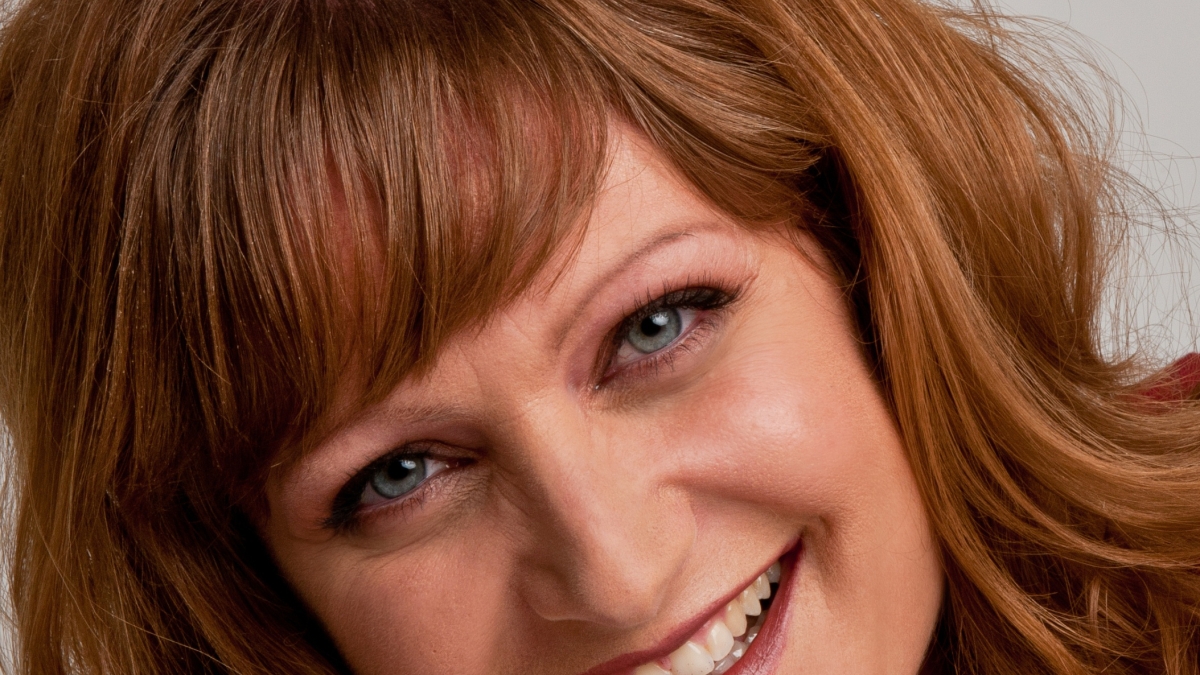Music therapy grad pursues a rewarding profession

As one of the helping professions, music therapy can be highly rewarding, as well as emotionally and physically draining, says Julie Hoffer Murillo, a music therapist who is receiving a master's degree in music therapy from the School of Music at ASU’s Herberger Institute for Design and the Arts.
"After an unsatisfying career in the media, I decided to pursue this course of study to combine my passions for music and for helping people," she says. Music therapy is an amazing profession – connecting with people through music to help them function at their maximum potential, and using music as a powerful tool for learning, communicating, coping and effecting positive change."
Murillo has been a practicing music therapist, working with people with varying disabilities, illnesses and special needs, since receiving a bachelor’s degree at ASU in the field in 2004. She became a lecturer and clinical training coordinator for ASU’s Music Therapy department in 2010.
"I absolutely love working as a supervisor and mentor, in tandem with the music therapy faculty," she says. "I decided to earn the master’s degree to advance my music therapy skills as a practitioner, an educator and a researcher."
The biggest challenge she faced in graduate school was managing a family and working full-time between three jobs.
"My time was very limited – most of my school work was completed while the rest of the world was asleep," she says. "It definitely affected my health and personal relationships, but I plowed through, keeping my ultimate goals at the forefront."
As with all of the helping professions, music therapists can be subject to stress and burnout. Murillo’s graduate research focused on how many music therapists engage in coping strategies to counter stress and which techniques are most often used. The most common methods of self-care reported were a healthy diet and rest, followed by recreation and leisure time with loved ones, exercise, hobbies and prayer.
Murillo believes that identifying triggers for stress and burnout and using healthy "self-care" methods can help therapists remain motivated, inspired and satisfied in their profession.
"Clients and patients who then receive therapy will experience the highest level of service from those who are self-actualized, practice wellness and are guided by a philosophy of optimal physical and mental health," she says.
Murillo’s own methods of self-care include "reading, cooking, traveling, time in nature, recreation with loved ones, giggles and snuggles with my children, and sleep. Lots of sleep!"
Despite the stress and challenge of her career and academic studies, Murillo is graduating summa cum laude with a 4.0 GPA. She acknowledges a great debt of gratitude to her primary instructors and thesis committee members, professors Barbara Crowe and Robin Rio, her parents and "an incredible network of family and friends whose abounding encouragement have made this journey possible."
"When the exhaustion and burnout tried to take me over," she says, "I reminded myself of the example I was setting for my young children – that if you work hard enough, you can accomplish anything and take advantage of so many more opportunities in this unpredictable world."
Murillo plans to continue music therapy practice, particularly in the areas of hospice, geriatrics, brain injury, stroke, oncology, developmental disabilities, mental health and wellness.